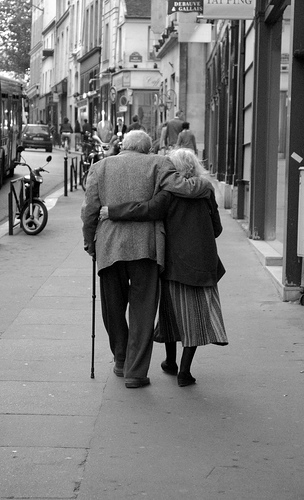We continue our sneak preview of the ten people who will be joining you in the on-the-page support group in The Amateur’s Guide To Death and Dying; Enhancing the End of Life. You’ll have plenty of opportunity to get to know them better once you start the book, but until then, these thumbnail sketches will serve as a handy reference.
 Clare, 73, and her husband, Charley, have been married for fifty-three years. They have four children, nine grandchildren, and five great-grandchildren. Clare’s leukemia, which was in remission for over ten years, has recurred. This time it is considered untreatable. She has decided to forego any of the heroic, life-sustaining measures for which modern medicine is so famous. She and her doctors agree that hospice is her best option. “I’ve done my homework. I’ve shopped around. I interviewed all the hospices in town and have chosen the one I feel will honor my wishes for the kind of end-of-life care I want.”
Clare, 73, and her husband, Charley, have been married for fifty-three years. They have four children, nine grandchildren, and five great-grandchildren. Clare’s leukemia, which was in remission for over ten years, has recurred. This time it is considered untreatable. She has decided to forego any of the heroic, life-sustaining measures for which modern medicine is so famous. She and her doctors agree that hospice is her best option. “I’ve done my homework. I’ve shopped around. I interviewed all the hospices in town and have chosen the one I feel will honor my wishes for the kind of end-of-life care I want.”
Clare has lived a rich and full life. “I was a career woman long before there was such a thing as a career woman. I’ve always been a take-charge kind of gal. This leukemia may very well kill me, but it will never get the best of me.” Her illness has made her very frail. Her skin is almost translucent. She has an otherworldly look about her, but there is no mistaking her remarkably robust spirit.
Her youngest son Stan, her one and only ally in the family, brought her to the interview and will see that she makes it to each meeting. Stan says, “Oh yeah, she’s feisty all right. There’s no flies on her, and the ones that are there are paying rent.”
Clare’s an avid pantheist. “God is everywhere and in everything. I have always had a close and abiding relationship with God.” Her faith has sustained and comforted her all of her life and she is at peace.
Clare’s biggest concern is her family. They are pressuring her to fight against death even though she doesn’t want to. She wishes that they would join her in preparing for her death rather than denying the inevitable. “I worry about how they will manage when I’m gone. And even though I’m ready to die, I feel as though I need their permission before I can take my leave.”
